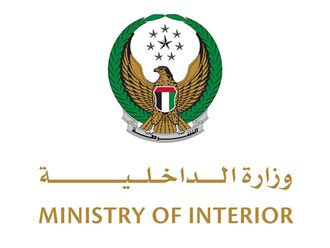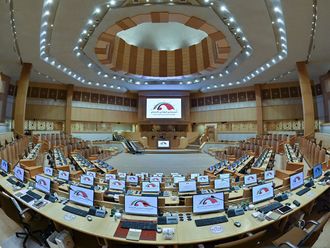Abu Dhabi: Abu Dhabi Health Services Company, SEHA, is at the forefront of epilepsy diagnosis and treatment in adults and children, actively advancing patient care in neurology and providing the best possible outcomes for patients.
Epilepsy is the fourth most common neurological illness, and since 2017, more than 11,700 patients have received the highest-level of medical and surgical care across SEHA network neurology clinics at Tawam Hospital, Shaikh Khalifa Medical City, Mafraq Hospital, and Al Rahba Hospital.
Epilepsy is neurological condition marked by abnormal electrical discharges in the brain resulting in a temporary disturbance of motor, sensory, or mental function. It most commonly appears in childhood, adolescence or late adulthood, and while it can be hereditary, some cases are caused by head trauma, brain infection, brain tumor or stroke. Along with different causes, there are various forms of epilepsy, each with its own symptoms, needs, and treatments. About 50 per cent of people could have their seizures controlled by the first medication, 15 per cent with the second medicine used, while 30 per cent of cases tend to resist drug therapy.
Doctors Mohammad Hamad Al Kuwaiti and Nuha Suleiman at Tawam Hospital's neurology department have developed surgical plans and performed multiple Vagus Nerve Stimulation, VNS, procedures for patients with initial convulsive seizures, pharmacoresistant epilepsy, and intractable epilepsy.
Dr Mohammed Hamad Al Kuwaiti, Consultant Neurologist at Tawam Hospital said: "As a dedicated clinic, we have treated 2,147 patients and are proud to continue to be on the leading edge of clinical care in this area. Our expert team of doctors, nurses, and technicians leverage the most sophisticated diagnostic technologies, alongside our Epilepsy Monitoring Units which helps identifying the most appropriate treatment plans for patients."
The pediatric neurosurgery team at Mafraq Hospital treated 15,135 patients with intractable epileptic seizures offering access to expertise and advanced diagnostic tests, including genetic testing for epilepsy and whole-genome sequencing to give insight into unique epileptic conditions with no previous diagnosis.
The team has had success in treating children with complex forms of epilepsy without even knowing the causes of disease, where individual patient medical, dietary, and surgical evaluation and treatment plans were developed in parallel to vitamin therapy and VNS.
Likewise, specialists at the Sheikh Khalifa Medical City and Al Rahba Hospital provide estate-of-the-art approaches to the diagnosis and management of epilepsy, where 2466 patients and 417 patients have sought care respectively.
Patients also benefit from the advanced academic technology partnerships with UAE University and New York University Abu Dhabi, both of which are focused on ensuring the availability of cutting-edge treatments for patients from across the UAE who receive medical care at SEHA health care facilities.
The neurology clinics also collaborate with colleagues at the neuropsychological department at Al Ain Eye Hospital, as well as Cleveland Clinic Abu Dhabi and Al Ain to optimise multidisciplinary medical care.











